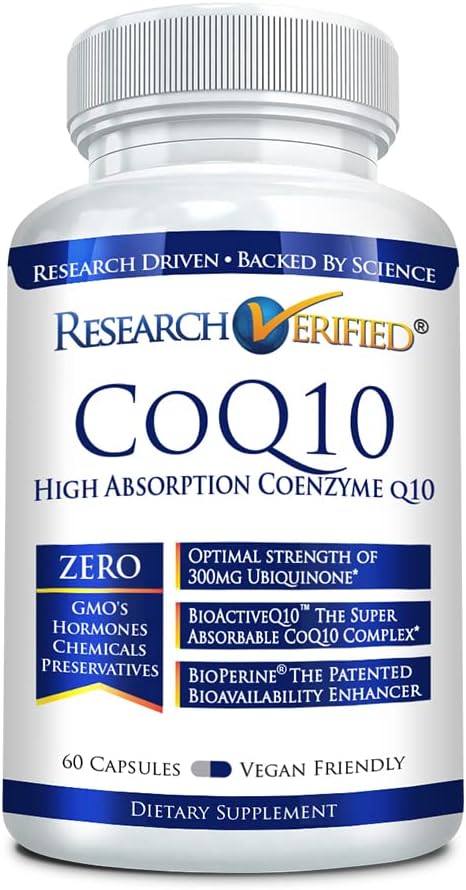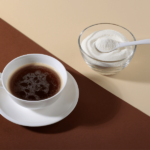In the intricate journey towards parenthood, many couples face challenges when it comes to fertility. These trying times turn hopeful couples to all different kinds of resources. Amidst various scientific advancements, CoQ10 has emerged as a beacon of hope. This blog post delves into the transformative role of CoQ10 for fertility, highlighting its significance, benefits, and application.
What is coq10?
Coenzyme Q10 (CoQ10) is a substance our body makes and is found in the part of cells that produce energy. It’s crucial for making ATP, the body’s main energy source, which helps with important tasks like metabolism and fixing cell damage. Plus, CoQ10 acts as a strong antioxidant, guarding cells against harm from free radicals that can hurt them (1).
The body’s natural production of CoQ10 declines with age and can be impacted by certain health conditions, leading to increased interest in its role in various health areas, including heart health, neurological functions, and fertility.
The Science Behind CoQ10 for Fertility Enhancement
CoQ10’s role in fertility stems from its fundamental function in energy production and antioxidant capacity, crucial factors for optimal reproductive health (2). In women, fertility declines with age, partly due to diminished quantity and quality of available eggs. This decline is associated with reduced mitochondrial activity within the eggs themselves. Mitochondria are the “powerhouses of the cell,” and their efficiency affects an egg’s energy supply, which is critical during the maturation and division stages (3). CoQ10, as a participant in the electron transport chain within mitochondria, aids in enhancing mitochondrial energy production, potentially improving egg quality by providing the energy necessary for healthy oocyte maturation and division (3). This has sparked interest in CoQ10 supplementation as a means to support female reproductive health, especially among women of advanced maternal age (35 and older) or those with certain fertility issues.
For men, the implications of CoQ10 for improving fertility are equally significant. Sperm motility, the ability of sperm to move efficiently, is a key determinant of male fertility. CoQ10 is concentrated in the midpiece of the sperm cell, where it contributes to sperm motility by fueling the mitochondria that power the sperm’s flagellar movement. Studies have suggested that CoQ10 supplementation can increase sperm count, motility, and morphology, thereby potentially enhancing male fertility (4). This is particularly pertinent in cases of idiopathic male infertility, where oxidative stress is often a contributing factor. By mitigating oxidative damage with its antioxidant properties, CoQ10 can promote sperm health, offering a potential therapeutic strategy for improving male fertility.
How to Incorporate CoQ10 in Your Routine
Many individuals meet their CoQ10 needs through diet alone. CoQ10 can be found in organ meats, some vegetables such as spinach and broccoli, and even in fruits such as oranges and strawberries. However, certain health conditions can make it so that dietary sources are insufficient for offsetting CoQ10 decline. For these individuals, CoQ10 supplements can provide the necessary higher dosage for those looking at fertility benefits. Supplementing with CoQ10 can be an easy and effective way to potentially boost your fertility. Research Verified offers such a supplement, which you can read about here.
“The best CoQ10 product on the market. I trust it.” – Donna Keas, Verified Amazon Customer
Precautions and Considerations When Using CoQ10 for Fertility
CoQ10 is generally considered safe; however, it’s essential to consider your personal health circumstances, potential drug interactions, and the appropriate dosage. Before starting any new supplement regimen, it’s crucial to consult with a healthcare professional.
Conclusion
The use of CoQ10 as a supplement to aid fertility has been supported both by scientific studies and real-life success stories. Couples who have faced fertility challenges have turned to CoQ10, and many have reported encouraging results. Embracing the possibilities of CoQ10 for fertility can be a game-changer for couples striving to start a family. This potent antioxidant, recognized for enhancing energy with few side effects, presents a promising addition to standard fertility treatments. Remember, while CoQ10 holds great potential, it’s part of a broader fertility strategy that should be discussed with a healthcare professional. Here’s to hopeful journeys and the joy of parenthood!




